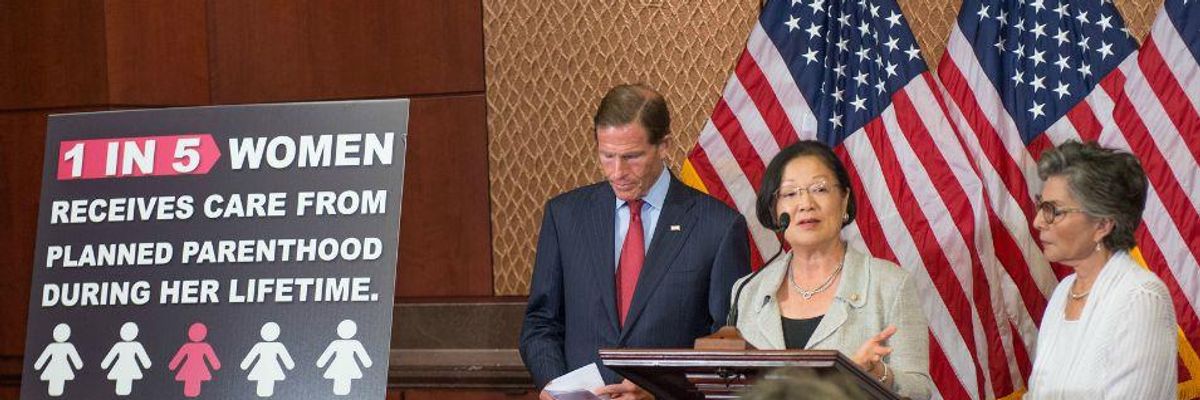On Thursday, right-wing extremists in the U.S. House of Representatives will vote to try to defund Planned Parenthood, one of the nation's largest providers of women's health care and family planning services.
Planned Parenthood is under attack and it's up to all of us to fight back. Any society that respects women must respect their right to control their own bodies. There is a strong moral case to be made for this -- but this video isn't about that. This is about the economics of family planning -- which are one more reason it's important for all of us to stand up and defend Planned Parenthood.
Reproductive rights, family planning, and women's health are all interrelated. All girls and women need full information and access to family planning services, including abortion -- regardless of their income level--so they can determine if or when they have children.
Public investments in family planning -- enabling women to plan, delay, or avoid pregnancy -- make economic sense, because reproductive rights are also productive rights. When women have control over their lives, they can contribute even more to the economy, better break the glass ceiling, equalize the pay gap, and much more.
Take the state of Colorado's highly successful family planning program. Over the past six years, in Colorado health department has offered teenagers and low-income women free long-acting birth control that prevents pregnancy over several years. Pregnancy and abortion rates plunged--by about 40 percent among teenagers across the state from 2009 to 2013.
In 2009, half of all first births to women in the poorest areas of the state occurred before they turned 21. But by 2014, half of first births did not occur until the women had turned 24, a difference that gives young women time to finish their education and obtain better jobs.
Nationally, evidence shows that public investments in family planning result in net public savings of about $13.6 billion a year -- over $7 for every public dollar spent.
This sum doesn't include the billions of additional dollars saved by enabling women who may not be financially able to raise a child and do not want to have a child or additional children to stay out of poverty.
Yet, over the last five years Republicans have cut 10 percent of the Title X federal budget for family planning, which also pays for critical services such as cancer screenings and HIV tests. And the Republican-controlled House Appropriations Committee has gone as far as trying to eliminate the program.
Meanwhile, many states have been cutting or eliminating family-planning funds. This isn't just morally wrong; its bad economics.
Obviously, these crass economic numbers don't nearly express the full complexity of the national debate around abortion and family planning. And they help make the case that we all benefit when society respects women to control their bodies and plan their families.

